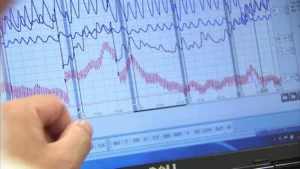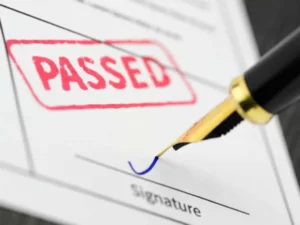If you are applying for a job that requires a security clearance or working in a sensitive field in the Philippines, you may be required to take a polygraph exam as part of the screening process. A polygraph exam is a procedure that is used to measure and record physiological responses to a set of questions. The exam is administered by a trained examiner who is trained in interpreting the results.
The exam typically consists of a series of questions that are designed to elicit responses from the test-taker. The examiner monitors the test-taker’s physiological responses, which include changes in blood pressure, heart rate, breathing, and perspiration. The examiner then interprets these responses to determine whether the test-taker is being truthful in their answers.

Polygraph exams are used in the Philippines to screen job applicants for certain positions, such as those in law enforcement or national security. They are also used in criminal investigations as well as in civil cases such as child custody disputes. The results of a polygraph exam are often considered an important factor in determining the credibility of a witness or suspect.
While polygraph exams have been used for many years in the Philippines, their use and reliability are still subject to debate. Some critics argue that the exams are unreliable and can be easily manipulated by the test-taker, while others maintain that they are an effective tool for detecting deception.
The importance of the polygraph exam results in employment and security clearance
If you are applying for a job that requires a security clearance or working in a sensitive field in the Philippines, the results of a polygraph exam can play a crucial role in determining whether you are hired or not. Employers use the results of a polygraph exam to evaluate your honesty, integrity, and trustworthiness.
The importance of polygraph exam results for employment and security clearance cannot be overstated. A failed exam can result in the revocation of a security clearance or disqualification from a job, while a successful exam can greatly improve your chances of being hired or retaining your security clearance.
The results of a polygraph exam are also important in employment settings where honesty and trustworthiness are critical, such as financial institutions or government agencies.
Which professions require a polygraph exam in the Philippines?

One of the most common professions that requires a polygraph exam in the Philippines is law enforcement. Police officers, detectives, and other law enforcement personnel are often required to take a polygraph exam as part of their background check and security clearance process. This is because the job requires a high level of trust and responsibility, and the accuracy of the information provided by law enforcement personnel can have a significant impact on criminal investigations and court proceedings.
In addition to law enforcement, other professions that may require a polygraph exam in the Philippines include government officials, military personnel, and individuals working in sensitive industries such as finance, energy, and telecommunications. For example, employees working in the Central Bank of the Philippines, which is responsible for regulating the country’s financial industry, may be required to take a polygraph exam to ensure their trustworthiness and integrity.
The use of polygraph exams in the Philippines is not limited to these specific professions and positions, and employers and government agencies may require a polygraph exam for any job that involves a high level of trust and responsibility. For example, employees working in the legal profession, security services, or those with access to classified information may also be required to take a polygraph exam.
It is important to note that not all employers or government agencies in the Philippines require a polygraph exam, and the decision to administer one is typically made on a case-by-case basis.
How a failed polygraph exam can affect a person’s career or job prospects
If you fail a polygraph exam in the Philippines, the implications might be serious, especially if you work in law enforcement or security. Losing your job, being denied employment, losing your security clearance, or facing criminal charges are all possible outcomes.
Law enforcement authorities, such as the Philippine National Police, use polygraphs as part of background checks and internal investigations. If a police officer fails a polygraph test, he or she may be immediately suspended or fired, depending on the severity of the results.
Private security firms, too, use polygraph testing as part of their hiring process. If a candidate fails the test, they may be turned down for employment. This is because private security firms must ensure that their staff are trustworthy and reliable because they are frequently in charge of securing sensitive information and assets.
Failure to pass a polygraph exam might result in criminal prosecution in some cases. For example, if someone is suspected of committing a crime and is asked to take one, the results might be used against them in court.
If you fail a polygraph exam, it’s important to understand your rights and options for appealing. In some cases, you may be able to request a retest or appeal the decision.
Common factors that can contribute to a failed polygraph exam

Several factors can have an impact on test findings. The physiological state of the test-taker is one of the most crucial aspects. Anxiety or tension can impact your heart rate, blood pressure, and breathing, making it more difficult for the test administrator to distinguish between true and false responses.
Another factor that can influence the test results is the test-taker’s level of familiarity with the questions being asked. If you are not familiar with the specific language or terminology being used in the questions, it can be difficult to accurately answer them, and the results may be inaccurate as a result.
The test administrator’s behavior can also impact the test results. If he is aggressive, confrontational, or overly suspicious, it can make you feel more anxious and may lead to false positive results. In contrast, if the administrator is relaxed, supportive, and non-judgmental, it may help to relax you and improve the accuracy of the results.
The conditions under which the test is administered can also affect the results. For example, if the testing environment is noisy, uncomfortable, or distracting, it can make it difficult to concentrate and may affect your physiological responses. On the other hand, if the environment is calm, quiet, and free of distractions, it may help you to focus and lead to more accurate results.
Finally, there is evidence to suggest that certain medications or substances can also impact the test results. For example, stimulants such as caffeine or amphetamines can increase your heart rate and blood pressure, potentially leading to false positive results. Additionally, some medications for anxiety or depression may affect your physiological responses and impact the test results.
The steps involved in appealing a failed polygraph exam result (agency and court)

If you have failed a security clearance in the Philippines, there are several steps you can take to appeal the decision.
- Request for a copy of the exam results: After receiving the results of your polygraph exam, you have the right to request a copy of your exam results from the administering agency.
- Review the results: Review your exam results carefully and make sure to understand the reasons for the failed result. It may be due to specific questions or topics that were asked during the exam.
- File a request for reconsideration: The next step is to file a request for reconsideration with the administering agency, where you will provide a written statement explaining why you believe the results of your exam were inaccurate. Include any evidence that supports your case.
- Attend a re-test: The agency may request that you take a re-test, which will be administered by a different examiner.
- Wait for the decision: After the re-test, the administering agency will review your case and decide whether to accept or reject your appeal. This process can take several weeks or months.
- Consider further legal action: If your appeal is rejected, you may want to consider further legal action. This could include filing a complaint with a higher authority, such as the Department of Labour and Employment or the Civil Service Commission.
The first step is to file a request for reconsideration or appeal with the agency that denied your clearance. This request should include all the relevant information related to the decision and the basis of the appeal.
The agency will then review your appeal and may schedule an administrative hearing. During the hearing, you will be given the opportunity to present evidence and testimony in support of your appeal. It is important to be well-prepared for the hearing and have all relevant documentation to support your case.
If the appeal proceeds in a legal manner:
If the administrative hearing does not result in a favourable decision, you may file a petition for review with the appropriate court. The court will review the decision and may schedule an oral argument where you can present your case. It is important to have a strong legal argument and supporting evidence to persuade the court to overturn the decision.
If the court still upholds the decision, you may file a motion for reconsideration or appeal to a higher court. The higher court will review the case and may schedule another oral argument where you can present your case.
It’s important to note that the time frame for the appeal process can vary depending on the specific court or agency involved and the complexity of the case. Additionally, there may be other procedural requirements that must be followed in order to file a successful appeal. A breakdown of the steps includes:
- File a Notice of Appeal: The first step in the appeal process is to file a written notice of appeal with the appropriate agency or court within the required time period. The notice of appeal should specify the grounds for the appeal and the relief requested.
- Submit an Appellate Brief: After filing a notice of appeal, the applicant must submit an appellate brief. This brief should include a summary of the case, a discussion of the appeal grounds, and an argument supporting the appellant’s position.
- Oral Argument: Oral arguments in the appellate court may be permitted in some cases. This allows the parties to present their arguments to the court and answer any questions the judges may have.
- Decision: The appeal court will issue a decision after considering the briefs and any oral arguments. The decision may either uphold or reverse the lower court’s decision, or it may return the case to the lower court for additional proceedings.
It’s always recommended to consult with a professional to ensure that you have a clear understanding of the appeal process and any specific requirements that may apply to your case.
The timeframe for filing an appeal and the necessary documentation
In general, the appeal process should be initiated as soon as possible after receiving notice of the failed exam. This is because there are often time limits for submitting an appeal, and delaying the process could result in missed opportunities for review.
When filing an appeal, if applicable, it is necessary to provide supporting documentation and evidence that challenge the original results. This documentation may include witness statements, expert opinions, and medical records. It is important to ensure that all necessary documentation is submitted, as failing to do so could result in the appeal being dismissed.
It is also important to note that the requirements for filing an appeal may vary depending on the organization or agency conducting the polygraph exam.
The possible outcomes of an appeal

Firstly, your appeal may be granted, and the original failed result may be overturned. This means that you would be considered to have passed the polygraph exam, and any negative consequences of the original failed result would no longer apply.
Alternatively, your appeal may be denied, meaning that the original failed result will stand. This would mean that the negative consequences of the failed result would still apply, such as being disqualified from a particular job or losing your security clearance.
In some cases, your appeal may result in a retest. This means that you would need to take the polygraph exam again, under similar conditions to the original test. Depending on the circumstances of your case, this may or may not be a positive outcome.
It is also possible that the outcome of your appeal may be delayed or that there may be some other procedural issues to be resolved.
An appeal might not always be successful or produce a satisfactory result. It is crucial to be aware of this potential outcome.
In court proceedings:
There are several possible outcomes, including affirmance, reversal, or remand. If the appellate court affirms the original decision, it means that the decision will stand and the original outcome will be upheld. On the other hand, if the appellate court reverses the original decision, it means that the original decision will be completely overturned and a new decision will be made. Finally, if the appellate court remands the case, it means that the case is sent back to the lower court for further proceedings or a new trial.
In the case of a criminal conviction, there are additional possible outcomes, including an acquittal, a new trial, or a reduction of the sentence. An acquittal means that the defendant is found not guilty and is released from custody. A new trial means that the case will be retried in front of a different judge or jury. A reduction of sentence means that the defendant’s sentence will be reduced, but they will still be considered guilty of the crime they were convicted of.
The possible grounds for an appeal of a failed polygraph exam result

Appealing a failed polygraph exam result in the Philippines can be a complex process that requires a thorough understanding of the grounds for appeal. There are several possible grounds for appeal that you may be able to use, depending on the specific circumstances of your case. Here are some of the most common grounds for appeal:
- Flaws in the polygraph exam process: If you believe that there were flaws in the polygraph exam process itself, you may be able to appeal your failed result on those grounds. For example, if the examiner failed to explain the test properly or did not give you an opportunity to ask questions, you may have a valid basis for appealing.
- Technical errors: polygraph exams can be affected by technical errors, such as faulty equipment or incorrect data interpretation. If you believe that a technical error occurred during your exam, you may be able to appeal your result on those grounds.
- Medical or psychological conditions: Certain medical or psychological conditions can affect the results of a polygraph exam. If you have a condition that you believe may have affected your test results, you may be able to appeal on those grounds. For example, if you suffer from anxiety or high blood pressure, these conditions can cause false positives on a polygraph exam.
- Inaccurate questioning: The questions asked during a polygraph exam are crucial to the accuracy of the results. If you believe that the questions were inaccurate, unclear, or unfairly biased, you may be able to appeal your result on those grounds.
- False positives: False positives can occur on polygraph exams, which means that you may have been flagged for deception even if you were telling the truth. If you believe that you received a false positive, you may be able to appeal your result on those grounds.
Conclusion
In conclusion, appealing a failed polygraph exam result in the Philippines can be a complex and challenging process. However, with proper knowledge and guidance, you can increase your chances of a successful appeal.
Some common factors that can contribute to a failed polygraph exam include anxiety, fear, medical conditions, medications, and inaccurate test administration.
To appeal a failed polygraph exam result, you must file a written appeal with the agency that administered the test within the allotted timeframe and include any necessary documentation.
By understanding the common factors that can contribute to a failed result, the necessary documentation and timeframe for filing an appeal, the possible outcomes of an appeal, and tips for appealing, you can navigate the process with greater confidence and success.

